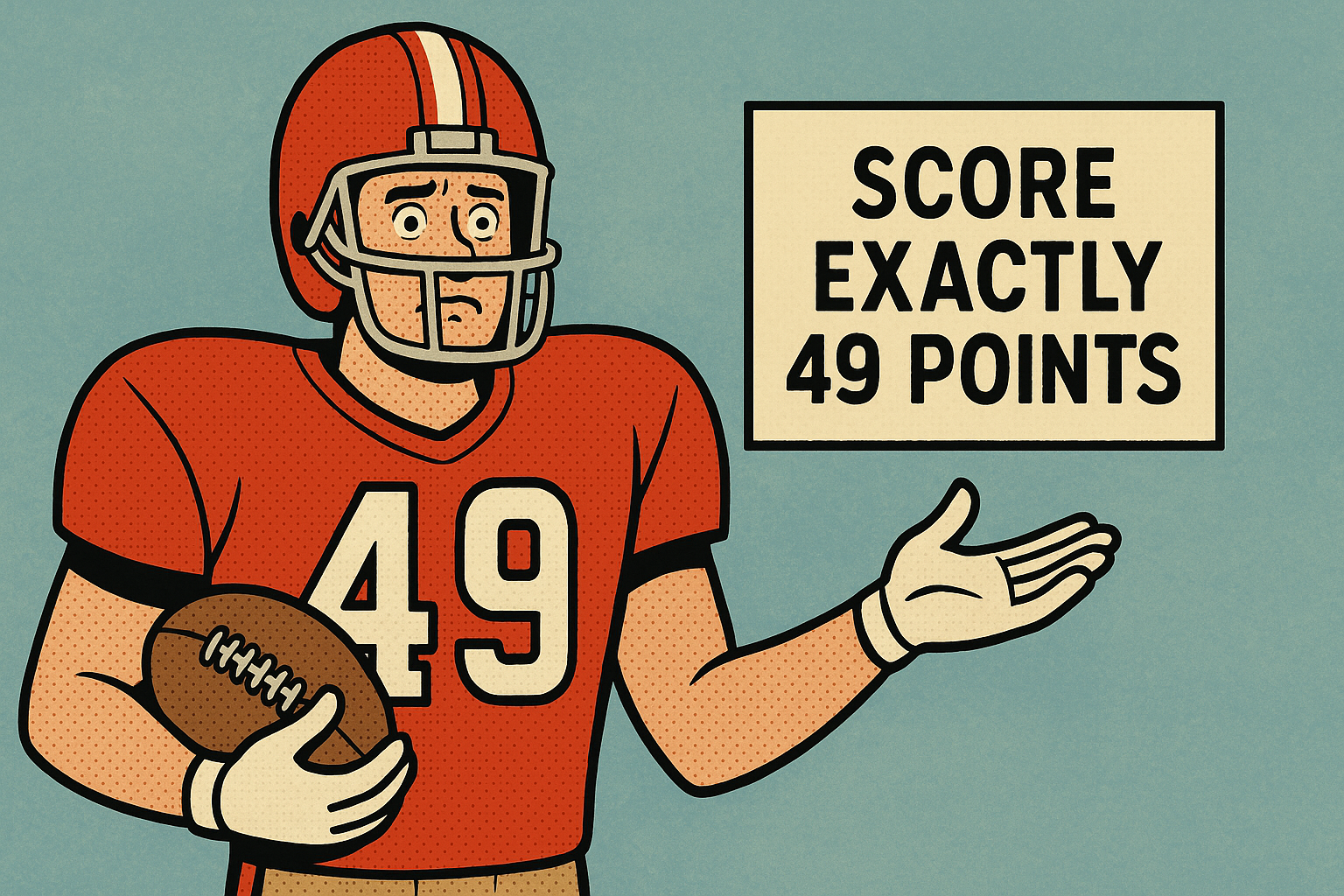New York, NY – In an unprecedented move that has sent shockwaves through the sports world, the National Football League (NFL) discreetly implemented a groundbreaking rule mandating that all teams must score exactly 49 points per game. Spearheaded by the newly-formed Committee on Exciting Parity and Predictive Results, the initiative aims to ensure a “balanced and equally thrilling experience” for all stakeholders, including fans, players, and television advertisers.
The new rule was quietly slipped into the league’s official guidelines during the annual “We Wouldn’t Dream of Looking Here for Anything New” summit. Renowned sports bureaucrat and visionary head of the committee, Chet Blauchowski, lauded the decision as “a historic leap forward in hyper-regulated spontaneity.” “Football is no longer simply about touchdowns and field goals,” Blauchowski said. “It’s about the precision and poetry required to manufacture precisely a 49-point game.”
Experts in the field, like Dr. Wendy Calculatria, head of the Sciences of Arbitrary Sports Dynamics at Velcro University, see this as the natural evolution of sports. “For years, we’ve been missing out on the untapped potential of exact scoring,” Dr. Calculatria said. “This evolution ushers the league into an unparalleled realm of controlled excitement where the drama of sports can finally be mathematically crafted to perfection.”
As NFL teams scramble to adapt to the rule, a new brand of coaching and playing philosophy has emerged. Teams are now required to hire specialized “Point Engineers” whose sole responsibility is ensuring each game concludes with a net score of exactly 49 points, not a point more or less. Inevitably, the rule has already influenced additional sectors, with vendors now selling “exact score” memorabilia at premium prices. Previously dominant quarterbacks are reportedly struggling with the pressure, forcing once-untouchable players into early retirement or worse, to the Canadian Football League, where chaos and erratic scoring still reign.
Fans, meanwhile, are raising concerns about family traditions being upended. Albert Jenkins, a life-long New England Butchers fan, expressed his bewilderment: “I used to be proud of my favorite team winning 14-3, but now my Sundays are consumed with anxiety, furiously doing math to figure out how a two-point conversion will fit into the 49-point directive.”
Intriguingly, this consumer angst has bled into other areas. A recent analysis suggests that television ratings, once a bedrock measure of viewer loyalty, have inadvertently surged to unprecedented heights. Many report compulsive tuning in, not out of love for the sport, but due to the compulsive thrill of watching teams try to maneuver their way around scoring excesses like kids calculating monetary change in candy stores. Yet, it remains unclear whether this neurotic frenzy will sustain interest long-term or spawn a full-blown football exhaustion pandemic.
Looking ahead, the NFL has hinted at additional regulations, including required uniform patterns and pre-approved half-time vocalists miming pre-recorded music to ensure acoustically balanced experiences. Critics suggest these are borne out of the same zeal for control but offer few further commentaries beyond resigned eye rolls.
The league’s latest venture into administrative audacity ironically concludes in the most predictable of ways: a renewed commitment to revisiting traditional elements of unpredictability, ensuring fans will still crave a taste of unpredictability within the meticulously curated confines of precision scoring.

Leave a Reply